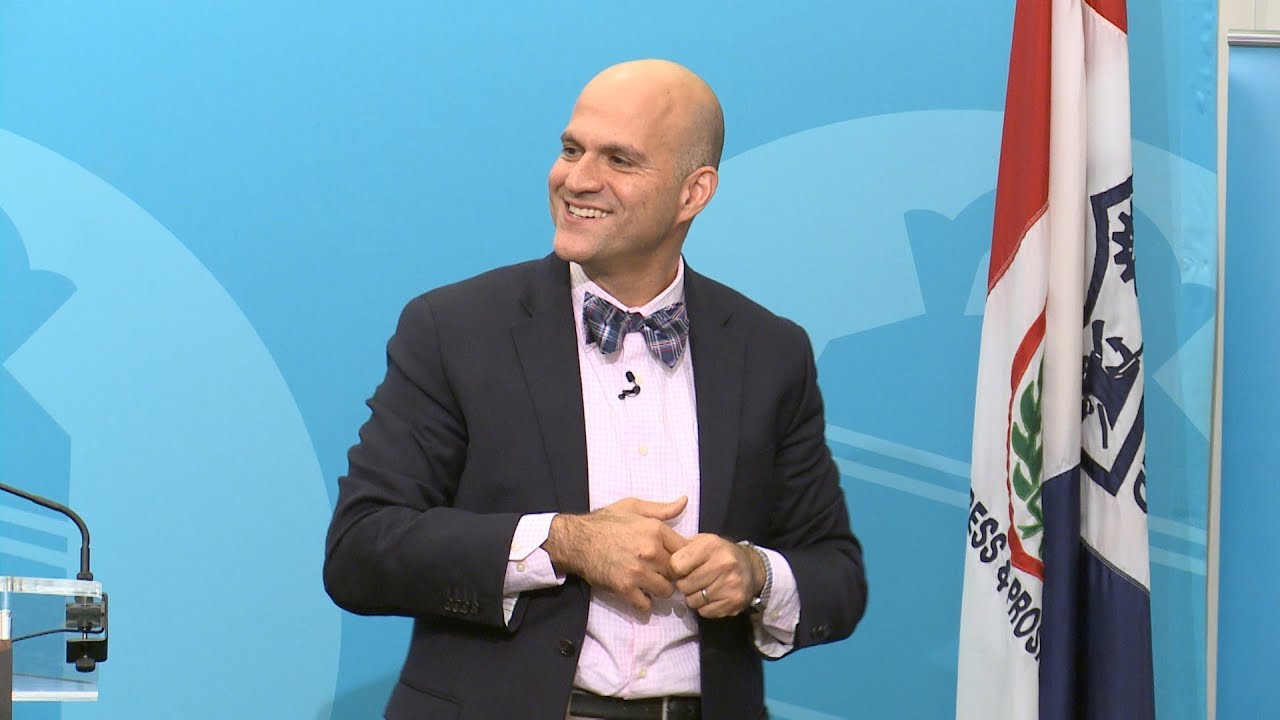Dr. Farzad Mostashari saw the dysfunction of America’s fragmented healthcare system firsthand while trying to help his mother navigate Medicare. “She has been the recipient of what is so common for the elderly in America, which is no one is in charge of her healthcare,” he explains.
“And so, it’s me from hundreds of miles—or sometimes thousands of miles—away trying to figure out and coordinate her care. She has had complications and hospital stays. She’s resilient but she has suffered a lot. So, anyone who has had a loved one in the grips of the system, where everyone is doing their part, but no one is in charge of the whole patient, I think that will resonate with them.”
Mostashari’s response was not simply to lament bureaucratic inefficiencies but to launch a new start-up, Aledade. This company aims to help medical providers reduce cost and waste while improving quality by centralizing patient information. Mostashari applies the same model of holistic well-being via transparency to his employees – earning Aledade a spot on FORTUNE’S latest list of top 50 places to work.
Farzad Mostashari Brings “Helicopter View” to Doctors
Mostashari’s goal is simple: improve the treatment of patients in the healthcare system while reducing burdensome costs.mAledade achieves this goal by consolidating all patient data into what it calls a “helicopter view.”
With a holistic perspective, doctors can survey all of the patient’s previous activity: which physicians the patient has visited, what tests and evaluations have been done, and how much all that is costing both the patient and the health care system. It also grades procedures, pharmaceuticals, and therapies on their efficiency for both the patient and doctor.
“The whole idea is to align incentives between society and doctors and patients,” says Dr. Mostashari, “We’re reducing unnecessary and harmful utilization and improving quality of care.”
Farzad Mostashari Gained His Own “Helicopter View” of US Healthcare
After growing up in Iran, Mostashari moved to upstate New York at age 14. He followed his passion for medicine to Yale School of Medicine and Harvard School of Public Health and began working at the Center for Disease Control.
Mostashari then became the National Coordinator for Health Information Technology in the Obama Administration. “The reason I went into government was, at the time, I felt the big thing we needed to improve was the right policies, but I wasn’t seeing the implementation in the field,” he recalls.
His position as national coordinator provided its own “helicopter view” of challenges within the American healthcare system. “There are lots of people making money treating patients like they are ATM machines,” he observes. “They are not going to provide access to the full data; they are not going to talk about the costs of everything being done to the patient.”
The Future of Aledade
Aledade aims to provide oversight to help individual elements of care work together rather than in silos. The company’s name was inspired an astrological instrument pointed toward the North Star. “Not focusing on box-checking but focusing on the outcomes is what I wanted this company to be all about,” Mostashari explains.
This approach extends to the inner workings of his company. “At Aledade, we’re driven by our shared passion and vision to create a health system that delivers better results for patients, physicians, and payers alike,” he says. “We believe this is only possible by assembling and supporting a team fully committed to putting the ‘care’ in value-based care.” Based on anonymous employee surveys, FORTUNE and Great Place to Work determined Aledade to be one of the country’s top environments for employees.
Aledade operates in 24 states across the nation and connects more than 300,000 Medicare patients. With its growing prosperity, Aledade is becoming a more mainstream software. “We just signed a one-of-a-kind partnership with Blue Cross/Blue Shield of North Carolina.”
Mostashari is set on expanding his model to more physicians and insurance companies. “I think we are going to the heart of the problems with healthcare,” he says. “That was really important to me if I’m going to do this. I wanted us to tackle the big issue, the heart of the dysfunction of fragmented healthcare and people like my Mom not getting the best care possible.”



